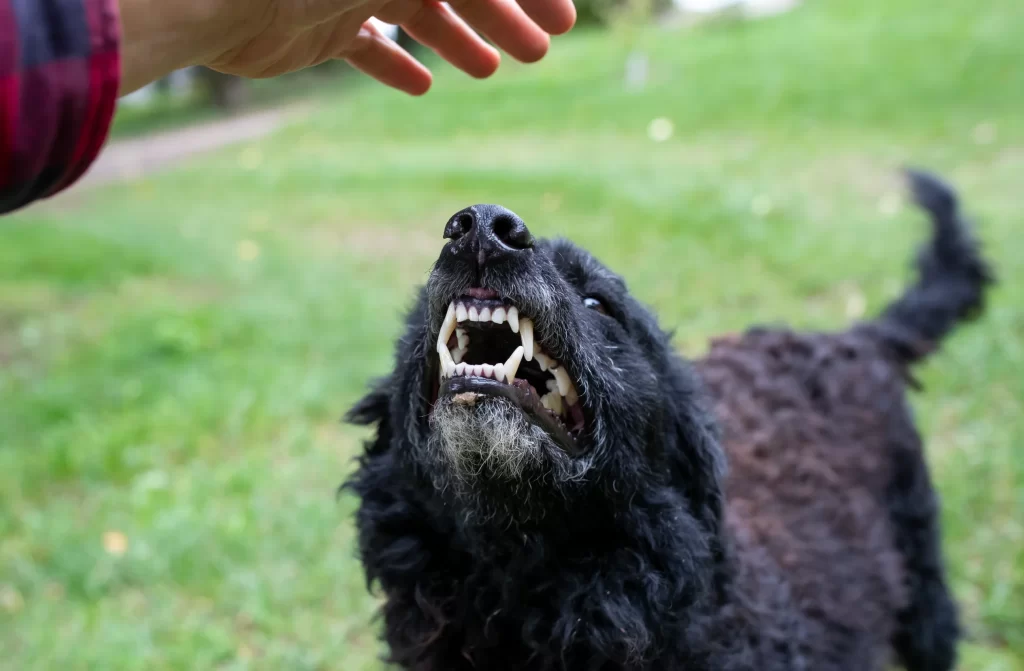How Do I Sue After a Dog Bite Attack in Florida?
Suffering a dog bite can be a traumatic experience, leaving physical scars and emotional distress. In Florida, the law provides avenues for victims to seek compensation for injuries from dog bites. This blog explores the legal framework surrounding dog bite incidents in Florida, detailing the steps victims can take to initiate a lawsuit, the challenges they may face, and practical advice for navigating the legal landscape.
Understand Florida’s Dog Bite Laws
Florida operates under a strict liability rule regarding dog bites. This means that the owner of the dog is liable for any injuries caused by their dog biting someone, irrespective of the owner’s knowledge of the dog’s aggressiveness or prior incidents. This law is outlined in Florida Statutes, Section 767.04, which provides that the owner of a dog that bites someone in a public place, or lawfully in a private place, is liable for damages suffered by the person bitten.
What Should I Do After a Dog Bite?
If you’ve been injured by a dog bite attack, speaking with an experienced dog bite lawyer and gathering detailed information are crucial for medical treatment and legal purposes. Here’s a list of the essential information you should collect if you or someone else has been bitten by a dog:
- Photographic Evidence: Take clear photos of the injuries, the location of the attack, and the dog involved. Take pictures of any scarring resulting from the dog attack.
- Medical Records: Save all medical records related to the bite, including treatments and prescriptions.
- Witness Information: Collect names, addresses, and contact details of witnesses, noting their accounts of the incident.
- Owner Information: Obtain the dog owner’s name, contact details, and any insurance information.
- Official Report: Report the incident to local authorities and secure a copy of the official report.
- Details of the Incident: Record all specifics about the attack, including date, time, and circumstances.
- Correspondence and Expenses: Track all related expenses and keep records of any communications regarding the incident.
Who is Responsible for the Attack?
In the case of a dog bite incident, the legal responsibility can extend to several parties, depending on the circumstances surrounding the attack. Here’s a detailed look at who might be held liable:
The Dog Owner: The dog owner is typically held liable under Florida’s strict liability dog bite laws, which state that the owner is responsible for any harm the dog causes, regardless of the owner’s knowledge of the dog’s aggressiveness or previous behavior. This liability applies as long as the victim was lawfully in the place where the bite occurred and did not provoke the dog.
The Property Owner: Property owners might be held liable if the attack occurs on their premises, especially if they were aware (or should have been aware) of the presence of a potentially dangerous dog and failed to take adequate measures to secure the safety of visitors or tenants. This could be due to insufficient fencing, lack of warning signs about a dangerous dog, or general negligence in managing the safety of the property.
The Landlord or Property Manager: Landlords or property managers can be deemed responsible if it is established that they knew about a tenant’s dangerous pet and did not take appropriate action to ensure the safety of other tenants or guests on the property. This responsibility hinges on proving that the landlord had control over preventing the dog from being a hazard and failed to exercise this control effectively, such as by enforcing lease provisions related to pet ownership or ensuring that common areas remained safe for all residents.
What Can I Recover for a Dog Bite?
If you’re the victim of a dog bite, you may be able to recover various types of damages depending on the specifics of the case. Here’s what you might be eligible to claim:
- Medical Expenses: Compensation for all medical treatments related to the dog bite, including hospital visits, medications, surgeries, and any future medical care related to the injury, such as physical therapy or reconstructive procedures.
- Lost Wages: If the injury caused you to miss work, you can claim compensation for lost wages. Additionally, if the bite affects your ability to work in the future, you might be eligible for compensation for lost earning capacity.
- Pain and Suffering: This includes compensation for physical pain and emotional distress resulting from the incident. Dog bites can often lead to significant psychological impacts, such as fear, anxiety, and even post-traumatic stress disorder (PTSD).
- Property Damage: If personal property was damaged during the incident, such as clothing or a smartphone, you can be compensated for the repair or replacement of these items.
- Punitive Damages: In cases where the dog owner’s behavior was particularly reckless or egregious, punitive damages might be awarded to punish the owner and deter similar future conduct.
- Loss of Consortium: If the dog bite significantly affects the relationship between the victim and their spouse or family members, compensation for loss of consortium may be awarded.
Each case is unique, and the types of damages recoverable will depend on the severity of the injuries, the circumstances of the attack, and local laws. Consulting with an Florida dog bite lawyer can help clarify what specific compensations are applicable to your situation.
Morey Law Firm, P.A: Your Florida Dog Bite Attorneys
Concluding this discussion on the steps to take after a dog bite attack in Florida, it’s clear that navigating the legal procedures and obtaining rightful compensation can be complex. Experiencing such an incident can be overwhelming, and dealing with its aftermath might require more than just medical attention—it often needs legal expertise as well. Morey Law Firm, P.A. is committed to representing dog bite clients. Our centrally located Orlando Dog Bite Attorneys represent clients throughout the state. They can help guide you through the process of collecting evidence, filing a claim, and potentially pursuing a lawsuit, ensuring that you are fairly compensated for your injuries and losses. Seeking professional advice can be a crucial step in managing the effects of the attack effectively.





